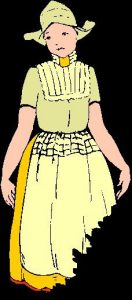
Chapter 1
A little-known universal adage states that a new thread of humaneness can be initiated by a single human being—but only with unique determination, and often without the awareness of the initiator. That is why Tyra Soroca hesitated at the top of the steps to Media High after the first day of school for the 1963-64 school year. She looked out on the broad sidewalk leading to Monroe Street at an ever-increasing student gathering—all surrounding one individual—the new foreign exchange student from the Soviet Union.
After assessing the situation, she pattered down the steps and scurried toward the din of her angry, fellow-American students. She broke through in time to see a large American boy shove the smaller Soviet boy. The Soviet’s head featured a pronounced, overly long nose; big ears; black, wavy hair; and heavy, black eyebrows stretched over large, brown eyes. His skin seemed whiter than Snow White’s.
A stack of the Soviet’s books sat on the pavement next to him. Tyra lunged forward and stood between him and his antagonist. She dropped her books on the pavement and glared into the eyes of the tall American boy, twelve inches her senior.
“Stop it,” Tyra said. “If you have a dispute, you talk it through. That’s called being civilized.” She looked around at the crowd. “Now, what’s going on?”
“Oh my,” one spectator said. “The fun’s over. It’s Miss Liberty-and-Justice-for-All.” He and several other students walked off.
“Who let in this Russian spy?” one boy asked.
“Holy Kryptonite, Superman,” Tyra snapped. “Agar is not a spy. He’s a Soviet citizen from the Ukraine. The American Foreign Student Service is experimenting with allowing Soviets to attend our schools as foreign exchange students. We’re sending them some of our own in return. You should be proud that our school was one of the few picked for this pilot program.”
A girl stepped out and shoved a thumb toward the Soviet. “Well, this jerk-off commie is bad-mouthing our country.”
“What is bad-mouthing?” asked Agar Ogarev. “I think it not in American dictionary.” He looked around at the crowd surrounding him. “That is what wrong with your country … you use more word than you have in dictionary.”
Tyra looked back at him. “You know, you’re not really helping your cause. Maybe you should kept quiet and let me handle this.”
A much bigger girl than Tyra walked out from the others. “Wait a minute. What business is it of yours, squirt?” She shot a thumb toward the street. “You need to take a long walk off a short pier. Now … beat it!”
Three other girls stepped forward, each with her arm thrust forward and worried expressions hanging on their faces. One of them said, “Uh, Shirley, you’re new to Media High this year.”
“You don’t know Tyra, yet,” the second girl said.
The third girl winced. “I think you’d better come back here with us and just watch.”
“Don’t tell me what to do,” Shirley said over her shoulder. She looked down at Tyra’s face; a face that looked as if it had never shown fear in its sixteen years of existence. “Now, you little punk, step aside, or I’ll walk right over you.”
Tyra shook her head. “I think you’d better listen to those other girls. You don’t want to do what you think you want to do … really. It could end up in uncivilized behavior.”
Shirley moved forward thrusting her arms out, but the smaller girl jumped aside, grabbed one of them, and slung her to the pavement. Tyra eased a foot on Shirley’s throat and yanked Shirley’s arm up toward her.
“Did you know,” Tyra said, “that there are eighteen ways to kill a human being without a weapon?”
“Arrrrrrghhhhhh!” Shirley said. “Okay, okay! Let me up.”
“Good choice,” a boy said. “She lives with her uncle, and he’s a World War Two veteran. We all believe that he set up a boot camp just for her and made her go through it.”
Jenny Annidots stepped out. “But she’s really a live-and-let-live person … if you don’t threaten her … or animals … or the innocent.” She threw out a hand toward Tyra. “She only wants to live in peace and harmony.”
“You’re just saying that because you’re her best friend,” a girl said, “and you’re nearly as weird as she is.” She looked around. “And, believe me, it’s no wonder that no one wants anything to do with either of you.”
The original bully that had pushed Agar helped Shirley up. He slung an arm around her shoulder. “Well, we have a real cause. Tell him to keep his big mouth shut and stop putting down our country. If he’s got bad things to say about America, he can keep them to himself.”
“Hey,” Tyra said, “we have a thing called the Constitution of the United States. We are not allowed to force others to think like us or keep them from thinking the way they choose. The Constitution guarantees all of us the right to our opinions and to express them in free speech.”
“You mean like you always express yourself?” a boy asked in the ever-thinning crowd. “You have the weirdest opinions of anyone else, you Madeline-Murray-O’Hare atheist.”
Tyra jammed her fists into her hips. “That’s humanist to you, jerk. The Constitution also gives us the right to worship as we please, and that also means to not worship if we so choose. You got a problem with that, then dig up the graves of our forefathers and argue with them, or work to get a constitutional amendment to change it. The Supreme Court settled that three years ago in Baltimore … eight to one.”
Most students in the crowd knew Tyra, and they understood the futility of sticking around and arguing with her. They quickly thinned out by walking away.
Jenny grabbed Tyra’s hand. “Got to run, Tyra. The trolley’s due any minute. Call me tonight.” She turned and ran for State Street the next block down. It harbored the trolley connection all the way to the outskirts of Philadelphia, but Jenny only lived down the line at the next stop in Springfield.
Agar scrutinized Tyra. At five feet one inch, she was an American girl of just below average height. Her clothing told of a modest girl; the blouse buttoned to the base of the neck, and her pleated skirt flared outward with an average spread that hung to mid-shin. The short-sleeves revealed arms with some muscular tone that epitomized her as an oxymoron to her shapely curves.
Her red hair hung long behind her in no particular style, though the shade seemed darker than usual—a sort of half-red, half-henna. With a fair complexion, body weight around one hundred and ten pounds, a face containing a thick, prominent nose, long thin lips, and brown eyes embedded just below thicker-than-usual eyebrows, she could have easily passed for East European. However, two things made her stand out from other American girls—she wore no makeup, and she donned little jewelry—only a silver heart dangling from a necklace.
“What is name?”
“Tyra Soroca.”
“All Americans come somewhere else. Where are Sorocas from?”
Tyra shrugged. “I really don’t know.”
“You one tough little American tsarina,” Agar said.
Tyra flattened her lips. “I don’t like injustice.” She stooped to pick up her books, and Agar crouched and helped her. “So, apparently your big mouth caused all of this.”
“Certainly not. Your people … they fail to follow Constitution, and so you point out.”
She stopped with a book in her hand and stared at him. “Agar, you’ve got to understand that you’re in a foreign country. You don’t want to offend the natives. And our situation … with the cold war between our countries so frigid, it makes that ten times more imperative.”
“What is imperative?”
Tyra stood up, straightened her books, and cradled them with her left arm against her chest. “Imperative means something that is so important that it cannot be avoided.”
Agar picked up his books and rose, cradling them in one hand beside his thigh. He couldn’t help notice the small size of her breasts, like those of a fourteen-year-old. “Are you junior?”
“Yes.”
“I, too.”
“I know. I read about you in the local paper.” She glanced around as if looking for someone. “Where do you live?”
“In Odessa of Ukrainian Soviet Socialist Republic.”
She cocked her head and squinted at him. “No, I mean here. Where are you staying?”
He pointed west. “Baltimore Pike near Plum Street. I live with Harveys.”
“That’s not far from my apartment. I’m on Front Street, two blocks before the courthouse. Come on, walk with me.”
He stepped closer and shoved his face in hers. “You very pretty girl. Perhaps you explain why your people so rude.”
Tyra narrowed her eyes so much that her eyebrows stretched downward toward her nose. She inhaled and stepped close enough to force him backwards. “Holy Kryptonite, Super-Soviet, now you’ve done it.”
Chapter 2

Christians like to say of tolerant people that they have the patience of Job. Tyra, though not a Christian, believed strongly in the concept. She borrowed several of her values from the Bible because she thought them excellent values. The virtue of tolerance kept her from exploding, as she stood face-to-face in front of Media High School with Agar Ogarev of the Soviet Union. He had called the people of the United States rude—and she didn’t get upset over it. Instead, she understood.
“Agar, in your first sentence you compliment me by calling me pretty. That’s sweet of you. Then in the next sentence, you call my compatriots rude. Holy Kryptonite, Superman, what is that all about? You certainly won’t win any international awards for diplomacy.”
He pressed his free hand to his chest. “We speak truth in Soviet Union. With us, you know exactly how we feel.”
She pulled her books against her chest. “But calling someone rude is an opinion. And if you want to think Americans are rude, then so be it; but you’d be wrong.” She started walking toward the street. “Now, escort me to my apartment before going home.”
They crossed Monroe Street, walked to the end of the block, and turned left on Front Street. The sidewalk consisted of red brick. Long, two-story buildings rose on their left, each divided into row-house apartments.
“Agar, I was going to seek you out anyway, because I am very interested in learning about the U.S.S.R. from one of its citizens.”
“I would be happy to help in understanding my people.”
“We have two classes together, did you notice?”
“American History and English. I notice you. You always so quick with answers to teacher questions. You smart girl, I think.”
Tyra smiled, turned around, and walked backwards staring at him. She thought it nice to be complimented on her intelligence instead of ridiculed like most of her classmates did. “I take my education more seriously than most of those around me.”
“You top student?”
“Straight A’s.”
He stopped and so did she. “In Ukraine … me, too. English and American History are two very important subjects for me. You maybe help me with them, no?”
“I’d be happy to. Maybe we could work together after school. I could help you with English, and you could teach me your language.”
“Russian very hard … more difficult for westerners.”
“English is no piece of cake.”
“There it is again. What have learning English to do with cake?”
Tyra laughed. She turned, and they walked to the end of the first block. “That is what makes our language difficult … the idioms. These are phrases that do not mean what they appear to mean.” She flourished one hand in front of her and bounced it up and down palm up. “A piece of cake means that a task is easily performed.” She dropped her hand by her side. “So, English is no piece of cake means English is not easy.”
Agar wiped his brow with the hand not carrying his books. “Why not say it that way … English is not easy?”
Tyra slid her lips toward her right cheek. Seconds later, she raised her eyebrows and raised one hand. “I honestly don’t know. That’s just the way it is.”
“It be better understood by foreigner not to say cake at all.”
They crossed the side street to continue on Front.
“How long you go to Media High School?” Agar asked.
“All my life.”
“But is high school, no? It only have grade nine, ten, eleven, and twelve.”
“There’s a junior high and elementary part connected to it. I’ve been around the town of Media since I was six. The first six years I lived in Lima just west of here.”
They arrived in front of a green door with the number ten on it.
Tyra pointed to it. “This is it … my humble abode.” She hesitated, and that would have been clear to anyone except Agar that she wanted to invite him in, even though the apartment was empty.
“I want to say,” Agar said, “I was happy for to see that you knew of Ukraine and recognize it as Soviet Republic. Most Americans I meet do not know that. They seem very ignorant of Geography. I ask one girl what state is below Pennsylvania, and she say North Carolina.”
Tyra slung her free arm around her books and let the left arm drop by her side. “Maryland and West Virginia. Oh, and Delaware, too. That’s closest to us.”
“I think this county is Delaware.”
Tyra opened her purse with her free hand. “It is. Media is the county seat for Delaware County. Sometimes states name counties after other states … looking at the map, one would think the names came from the Delaware River, but that wouldn’t be right.”
She reached inside her purse and pulled out a set of keys. “You see, before Europeans settled here, there were the Delaware Indians.” She fingered through the keys until she isolated one. “Oh, and not all Americans are ignorant of their own geography. Last year in Geography class, I won the teacher’s challenge … to name all fifty states without the aid of a map.”
He pointed at her and smiled. “You can name all fifty? This I cannot believe.”
Tyra smiled. “Why don’t you come in a minute and see for yourself?”
He raised one hand, pinched his index finger against his thumb, and held the other three fingers up. “Is a-okay.”
Tyra repeated the gesture. “Fantastico! You see, Agar, you’re learning American ways.” She unlocked the door, and they stepped inside a hallway.
On shutting it, the fragrance of wood hit his nose. “That smell … it remind me of parents’ wood house back in Odessa.” He looked down the dark hallway. A flight of stairs on the right led upward. “Where is family?”
“My uncle works in the courthouse.”
He looked up at the ceiling of the miniature foyer and spied a unimpressive chandelier. “Everything smaller than my parents’ mansion back home. You have brother or sister?”
“No.”
“Where is mother and father?”
“I don’t have either.”
He backed away and bumped into the door. One of his books slipped and thudded onto the wood floor. “Then we alone?”
Tyra laughed, for she had guessed what went through Agar’s mind. She eased forward and crowded him, held her head back, and spoke like Greta Garbo. “Yes, we are alone, darling. Don’t you want to be alone?”
Click HERE to go back to the top.
